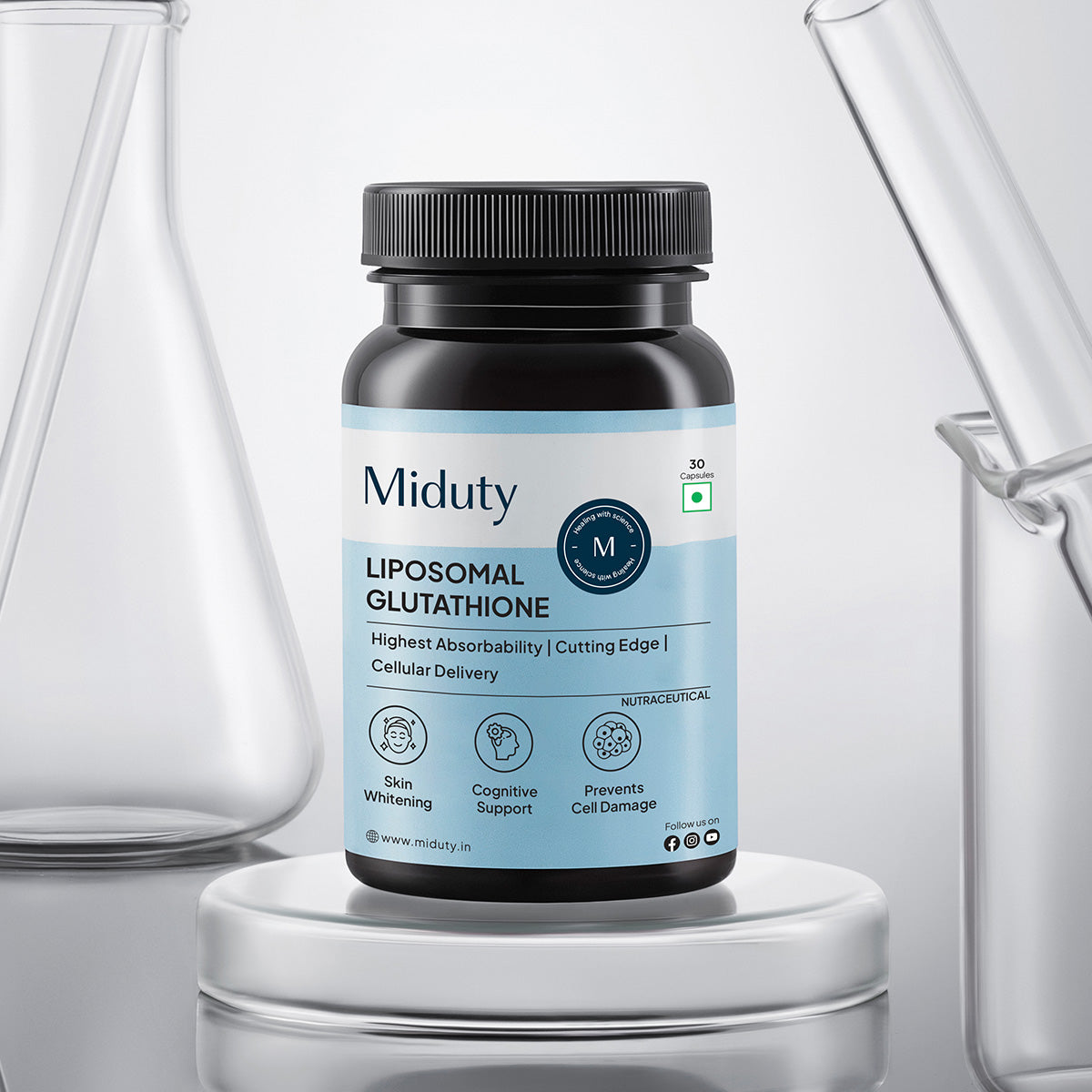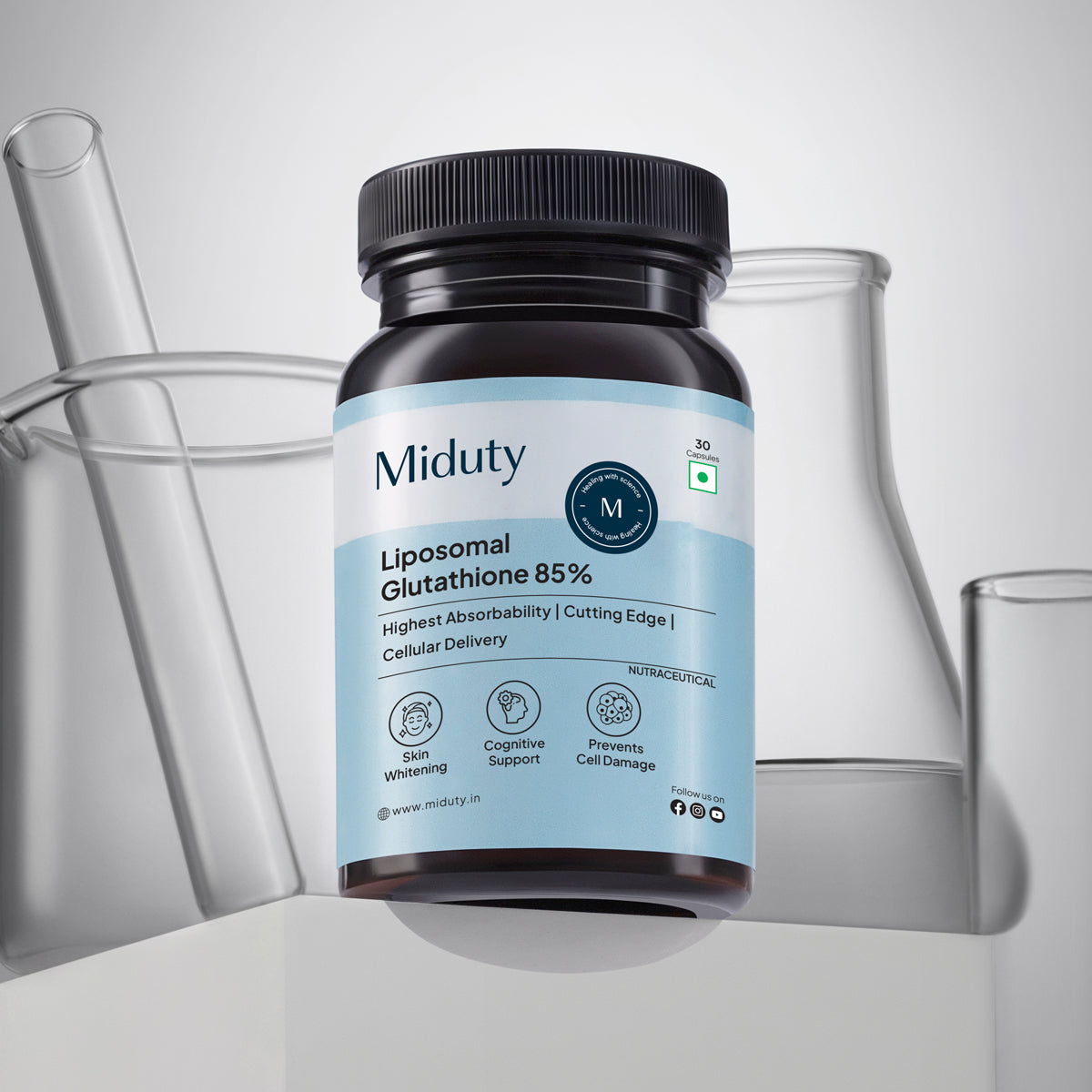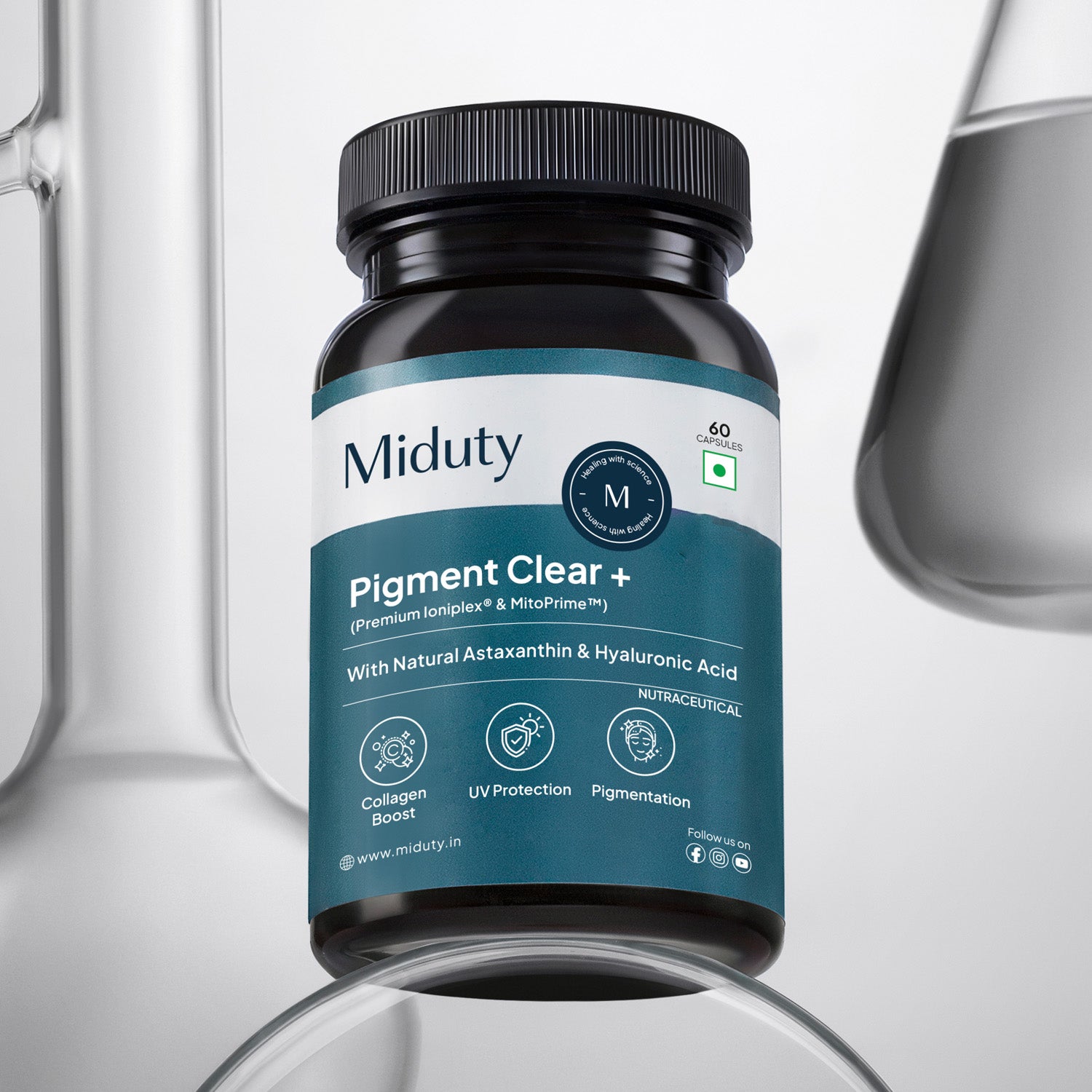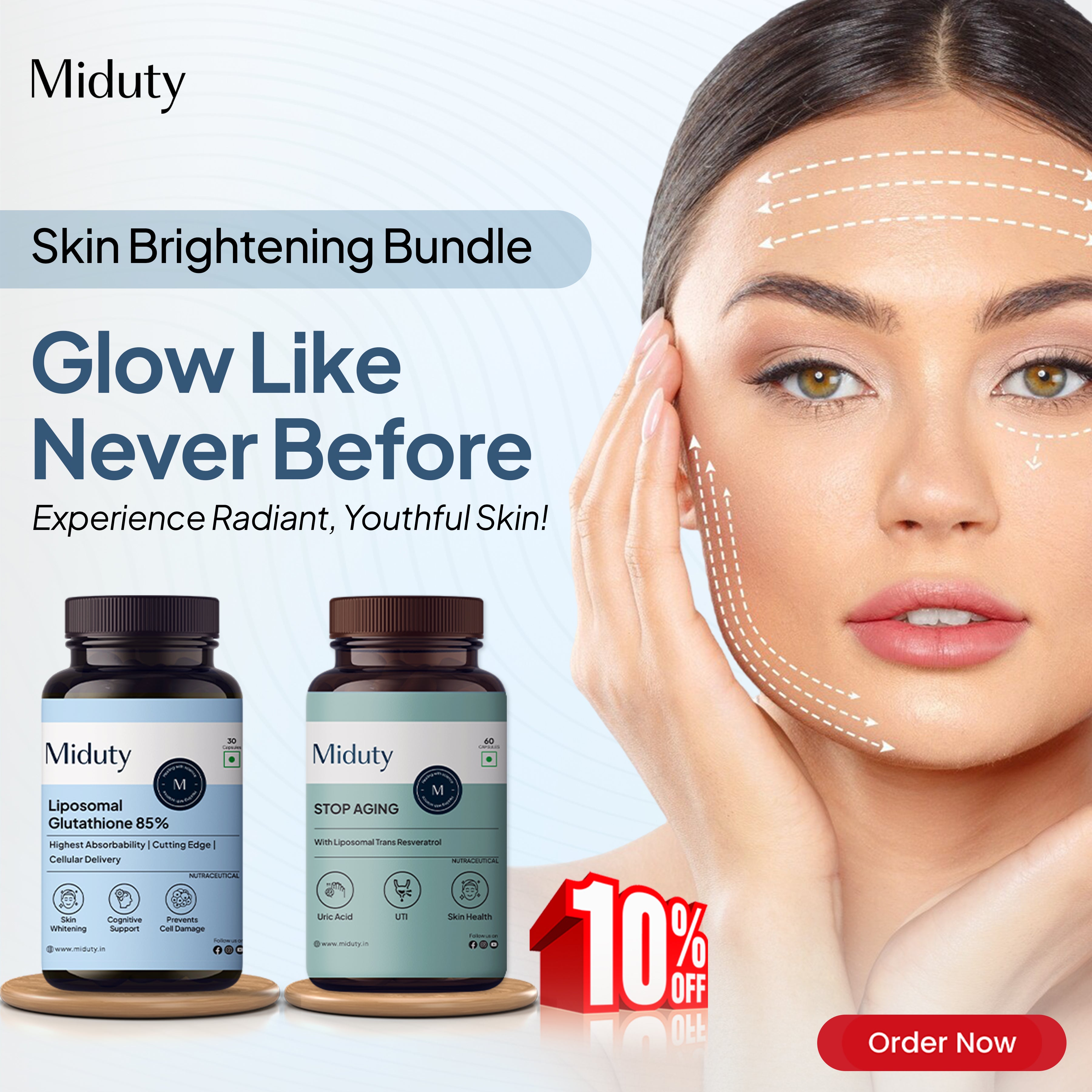
What To Avoid When Taking Glutathione - A Complete Guide
If you've started taking glutathione to brighten your skin, boost your energy or simply feel healthier from the inside out, you're definitely not alone. Thousands of people rely on this "master antioxidant" with the hope of achieving clearer skin, better detoxification, a stronger immune system and that natural, lit-from-within glow. And while glutathione is powerful, here's the part most people overlook: your everyday lifestyle choices can either amplify its effects or quietly prevent it from working the way it should.
Everything from your late-night sleep schedule to your weekend food choices, even stress levels and sun exposure, can influence how effectively glutathione functions in your body. In fact, many people unintentionally slow down their own progress without even realizing it. So if you truly want to maximise the results of every glutathione capsule, injection or drip, understanding what might be holding you back is just as important as the supplement itself.
Key Takeaways
1. Glutathione works best when supported by healthy lifestyle habits. Choices like good sleep, stress control and a nutritious diet significantly impact how well glutathione performs in your body.
2. Certain habits can reduce or block glutathione's effectiveness. Alcohol, smoking, excessive caffeine, junk food and too much sun exposure can weaken results and increase oxidative stress.
3. Consistency is essential for visible improvements. Skipping doses, expecting instant results or being inconsistent with supplementation can slow progress, especially for skin-brightening goals.
4. Pairing glutathione with vitamin C boosts absorption and results. Vitamin C enhances glutathione activity, making it an important companion nutrient for stronger benefits.
5. Choosing the right supplement makes a huge difference. Advanced formulations like Lipoglo™ Liposomal Glutathione 40% offer up to 8x better absorption, leading to faster and more noticeable outcomes.
What is Glutathione?
Glutathione is a powerful antioxidant naturally produced in every cell of the human body. It is made from three key amino acids—glutamine, cysteine and glycine—and plays an essential role in maintaining cellular balance. Often referred to as the "master antioxidant," glutathione helps neutralize harmful free radicals, protects cells from damage and supports overall detoxification. It is especially concentrated in the liver, where it assists in breaking down toxins, chemicals and metabolic waste. Glutathione also helps regulate the immune system, supports various metabolic processes and contributes to healthy skin appearance. Although the body produces it naturally, factors like stress, poor diet, ageing, pollution and illness can reduce its levels, making supplementation helpful for many individuals.
What is Glutathione's Role?
Glutathione contributes to several essential bodily functions, such as:
- Supporting the liver in removing toxins
- Strengthening the immune system by targeting free radicals
- Helping reduce pigmentation and evening out skin tone
- Reducing oxidative stress that accelerates ageing
- Aiding in the repair and protection of cells
When supplemented — via oral doses, sublingual forms, or IV — certain habits and substances can interfere with its effectiveness, so it's important to avoid them.
What to Avoid When Taking Glutathione?
1. Avoid Alcohol Consumption
Alcohol is one of the main things to stay away from when taking glutathione because it directly interferes with the supplement's ability to do its job. Even small or occasional drinking can weaken glutathione's impact on detoxification and skin improvement. [1]
Impact: Alcohol places heavy stress on the liver and encourages free-radical activity, which counters glutathione's benefits.
Situation Example: A person using IV glutathione for skin brightening may see slower or reduced results if they consume alcohol often.
2. Limit Processed and Junk Foods
Diet plays a major role in glutathione's performance, and consuming unhealthy foods can drastically limit how well your body absorbs and uses it. Junk and processed foods quickly undo the progress glutathione is trying to make internally.
Reason: Sugary, oily and highly processed foods escalate inflammation and toxin buildup, making it harder for antioxidants to work efficiently. [2]
Helpful Note: Switch to whole, nutrient-dense foods like leafy greens, fruits, nuts and other antioxidant-rich options.
3. Avoid Smoking and Heavy Pollution
Smoking and polluted environments can quickly diminish glutathione levels because they overload your body with toxins. If you're around smoke or polluted air often, your body ends up using glutathione just to cope with the damage.
How it Affects You: Both smoking and air pollutants introduce high amounts of toxins, causing your body to deplete glutathione rapidly to defend itself.
Practical Reminder: Individuals taking glutathione for skin improvement are often advised to quit smoking to maintain clear, bright-looking skin.
4. Do Not Mix with Certain Medications
Some medications may interfere with how glutathione is processed, reducing its effectiveness or causing unpredictable interactions. This makes it important to know whether your current prescriptions align safely with glutathione use.
Medications to be cautious with:
- Certain chemotherapy drugs
- Specific antibiotics like ciprofloxacin
- High-dose paracetamol
- Some antipsychotic medications
Impact: These drugs can reduce glutathione levels or affect how the body uses it.
Useful Guidance: Always speak with your doctor or nutrition expert if you are on prescribed medication.
5. Avoid Excess Caffeine
Large amounts of caffeine may work against the benefits of glutathione because it overstimulates the body and increases oxidative stress. When caffeine levels are too high, glutathione must work harder to rebalance your system.
Reason: Too much caffeine increases cortisol and encourages oxidative activity, which weakens antioxidant action.
Simple Suggestion: Keep caffeine to 1–2 cups a day or consider alternatives like green tea.
6. Stay Away from Excessive Sun Exposure
Sun exposure works directly against skin-brightening goals when taking glutathione because UV rays trigger melanin production. Too much sunlight can undo the brightening and repair work that glutathione is trying to support.
Impact: UV rays increase melanin production and oxidative stress, undermining glutathione's skin-enhancing effects.
Helpful Note: Use SPF 50 sunscreen and avoid midday sun if you are aiming for skin-lightening benefits.
7. Don't Take It Without Vitamin C
Skipping vitamin C while taking glutathione is a common mistake because the two work much better together. Without vitamin C, glutathione isn't absorbed or activated as efficiently, leading to weaker results.
Reason:Vitamin C helps boost glutathione activity and improves its absorption.
What to Avoid:
- Taking glutathione without supportive antioxidants
- Ignoring vitamin C-rich foods or supplements
Simple Recommendation: Take 500–1000 mg of vitamin C daily along with glutathione.
8. Avoid Skipping Doses or Inconsistent Usage
Glutathione requires consistent intake to show noticeable results because it builds up in the body gradually. Missing doses or using it irregularly prevents your levels from stabilizing, which slows progress.
Impact: Irregular use slows the buildup of glutathione levels in the body.
Useful Guidance: For goals like detoxification or brightening, steady dosing is essential.
9. Avoid Expecting Immediate Results
Many people lose patience or misuse the supplement due to unrealistic expectations, thinking glutathione works overnight. In reality, its effects develop slowly as the body adjusts and toxin levels decrease.
Reason: Glutathione works gradually; rushing the process or doubling doses won't speed up improvement.
Timeline Insight: Most users begin noticing visible changes after 4–8 weeks of regular and paired lifestyle changes.
10. Avoid Low-Quality or Counterfeit Supplements
Not all glutathione products are equally effective, and poor-quality versions may contain weak formulas or harmful additives. Choosing unreliable brands can lead to disappointing results or unsafe reactions.
What to Avoid:
- Cheap, unverified brands
- Unregulated online sellers
- Poorly absorbed forms
Practical Reminder: Choose reliable, medical-grade glutathione from trustworthy sources.
11. Avoid Stress and Lack of Sleep
Lifestyle factors heavily influence glutathione levels, and chronic stress or poor sleep can quickly drain them. When your body stays in a stressed or exhausted state, it demands more antioxidant support than glutathione can provide.
Reason: Stress increases free-radical activity, and poor sleep reduces the body's ability to repair cells and produce antioxidants.
Helpful Note: Aim for 7–8 hours of rest and adopt calming practices like yoga, deep breathing or meditation.
12. Don't Ignore Water Intake
Water supports detoxification — a key function of glutathione — and staying dehydrated limits its overall impact. Proper hydration helps your body flush out toxins more efficiently, allowing glutathione to work at its best.
Impact: Not drinking enough water slows the removal of toxins, reducing glutathione's efficiency.
Simple Recommendation: Consume 2.5–3 liters of water daily, especially when using oral or IV forms.
How to Take The Best Glutathione Supplement?
Standard glutathione capsules often break down in the digestive system, reducing their effectiveness. This is why advanced delivery methods make such a difference.
A highly effective option is a glutathione supplement containing Lipoglo™ — Liposomal Glutathione 40%. This next-generation delivery system protects glutathione through digestion and has been shown to provide up to 8x higher absorption than regular supplements.
Additionally, A Liposomal Glutathione 85% supplement, validated by TEM Reports, offers even greater bioavailability, ensuring more glutathione reaches your bloodstream for maximum effectiveness.
Higher absorption means your body receives more active glutathione, leading to faster, clearer and more consistent results.
Final Thoughts
Understanding what to avoid when taking glutathione is just as important as knowing how to use it. Even the most powerful supplement can only work effectively when supported by the right lifestyle habits. Steering clear of alcohol, smoking, excessive sun exposure, processed foods, high stress and low-quality supplements helps protect your glutathione levels and allows your body to make the most of every dose. At the same time, pairing glutathione with vitamin C, proper hydration, quality sleep and a nutrient-rich diet significantly enhances its absorption and overall benefits.
When used consistently and combined with mindful daily choices, glutathione can work as a strong ally for brighter skin, better detoxification and improved overall wellbeing. Small adjustments in your routine can greatly amplify your results, helping you experience the true potential of this master antioxidant.
FAQ's on Glutathione Consumption -
Q1 - What should you not mix with glutathione?
It's important not to combine glutathione with excessive alcohol, smoking, or certain medications like acetaminophen or chemotherapy drugs, as they can interfere with its effectiveness or deplete your body's glutathione stores. High doses of iron or copper supplements, as well as excessive intake of caffeine, processed foods, and artificial sweeteners, can also diminish its benefits.
Q2 - What are the do's and don'ts after glutathione?
After taking glutathione, it's important to drink plenty of water, apply sunscreen, attend follow-up appointments, and avoid alcohol and smoking to enhance results and support your body's recovery. Additionally, refrain from strenuous exercise and invasive skincare treatments for a short period, and follow your doctor's specific instructions for optimal outcomes.
Q3 - Is it okay to drink coffee while taking glutathione?
Yes, you can drink coffee with glutathione, but it's best to avoid consuming them at the same time to optimize absorption. It's recommended to wait a few hours before and after taking a glutathione supplement before having coffee. Excessive caffeine intake can also interfere with the effectiveness of glutathione.
Q4 - When not to take glutathione?
You should consult a healthcare professional before taking glutathione if you have asthma, are pregnant or breastfeeding, have severe liver or kidney dysfunction, are undergoing chemotherapy, are taking certain medications, or have had an organ transplant.
Q5 - How to take glutathione for best results?
For optimal results with glutathione, take 500-1000 mg of L-reduced or liposomal glutathione daily, divided into two doses on an empty stomach, and combine it with Vitamin C. Consistency in supplementation, along with a healthy lifestyle, is key to achieving visible benefits, which usually become noticeable after 8-12 weeks.
References












